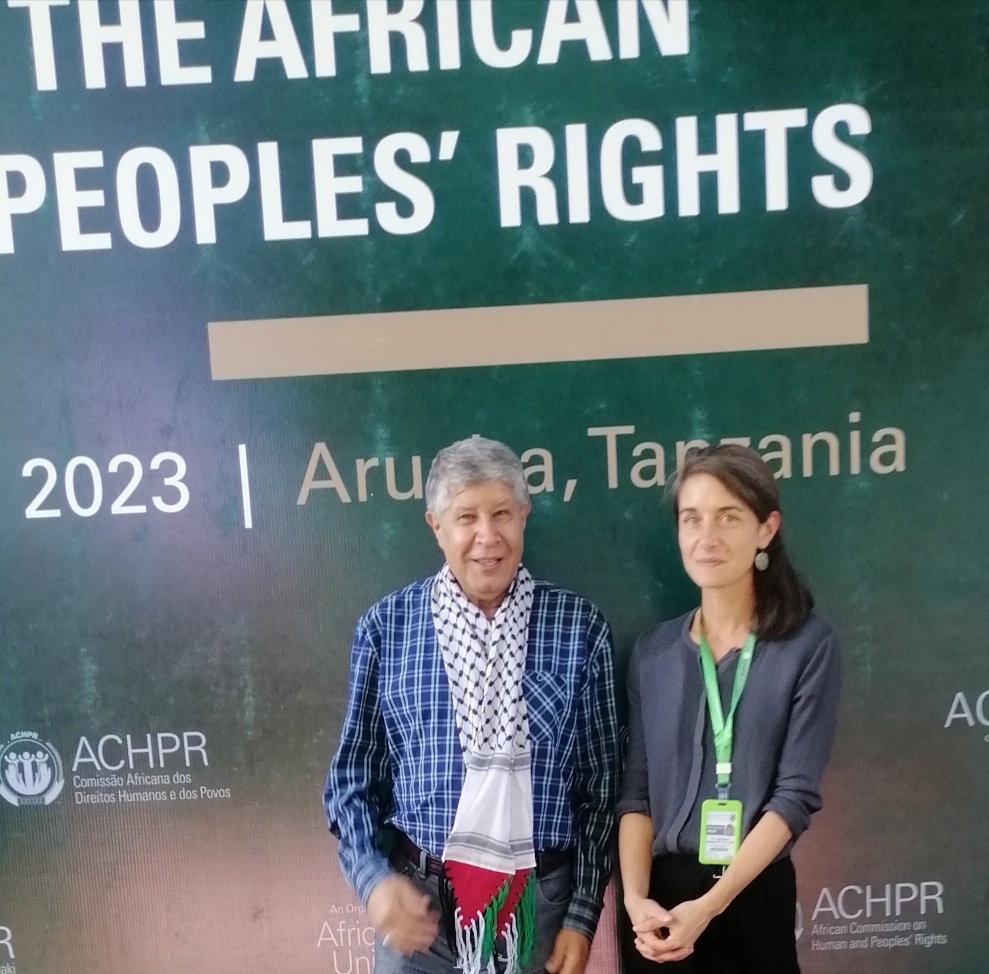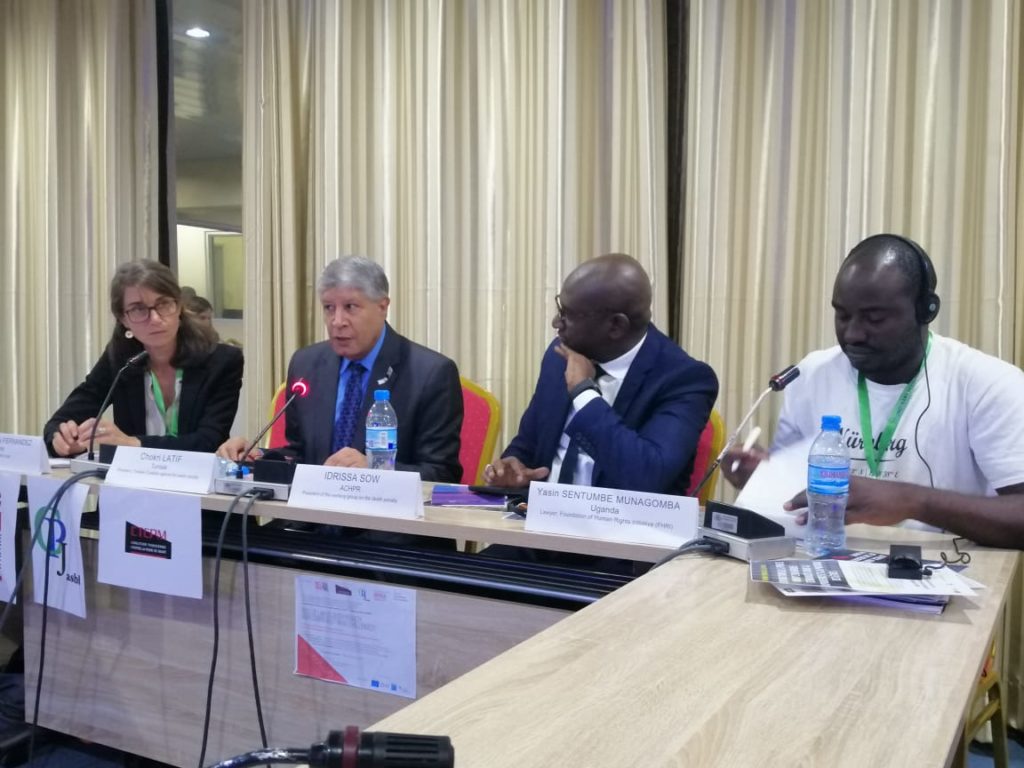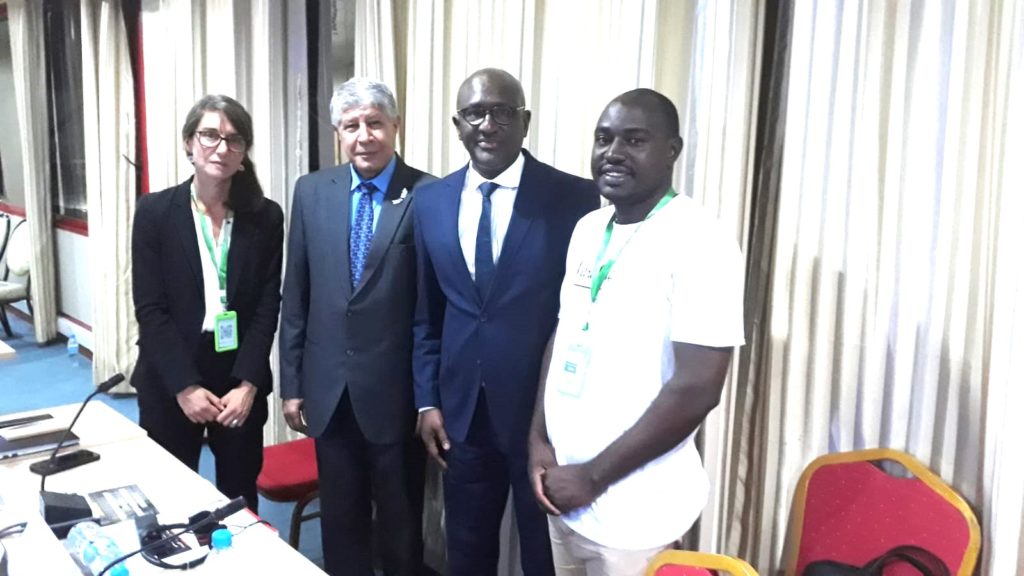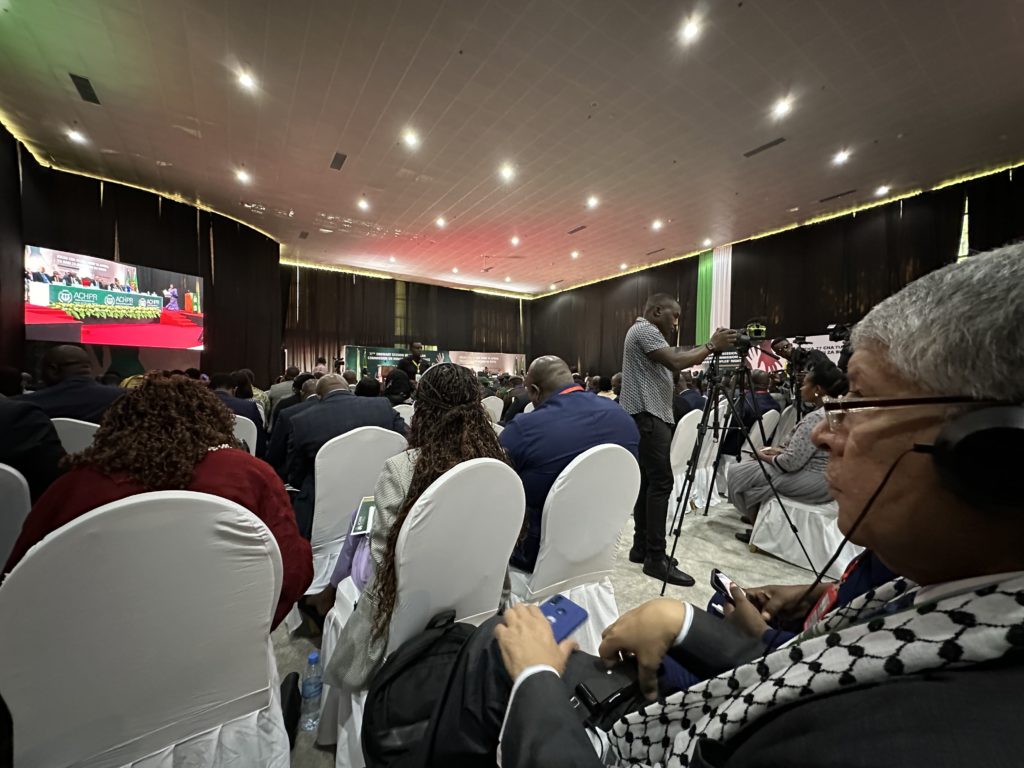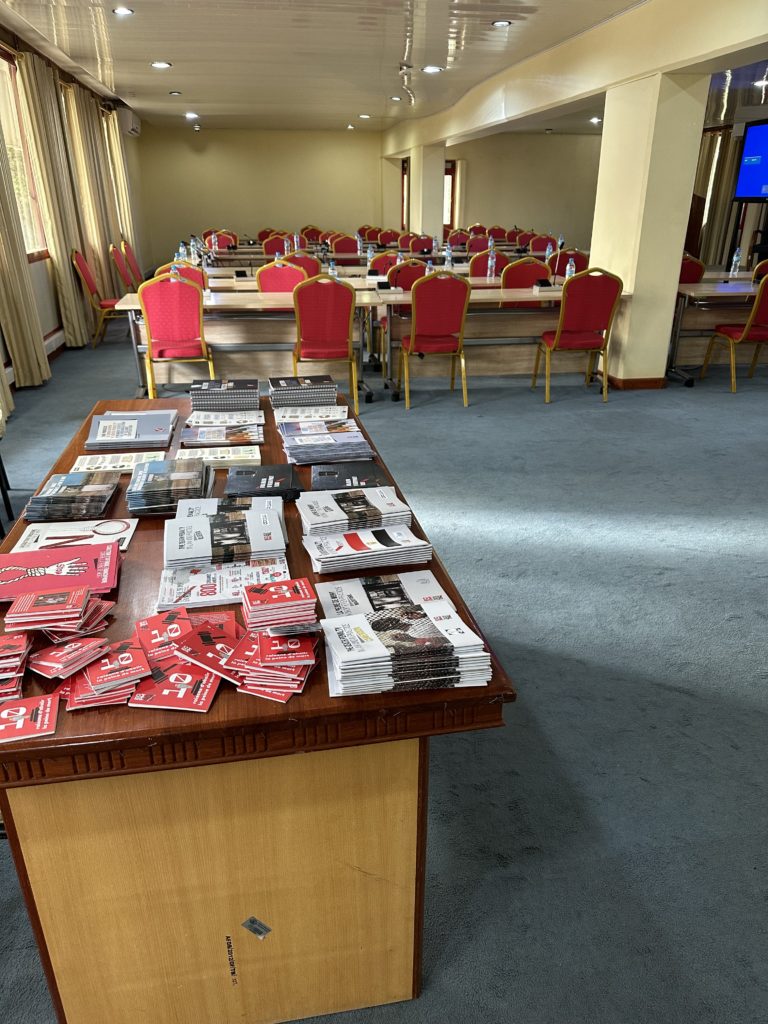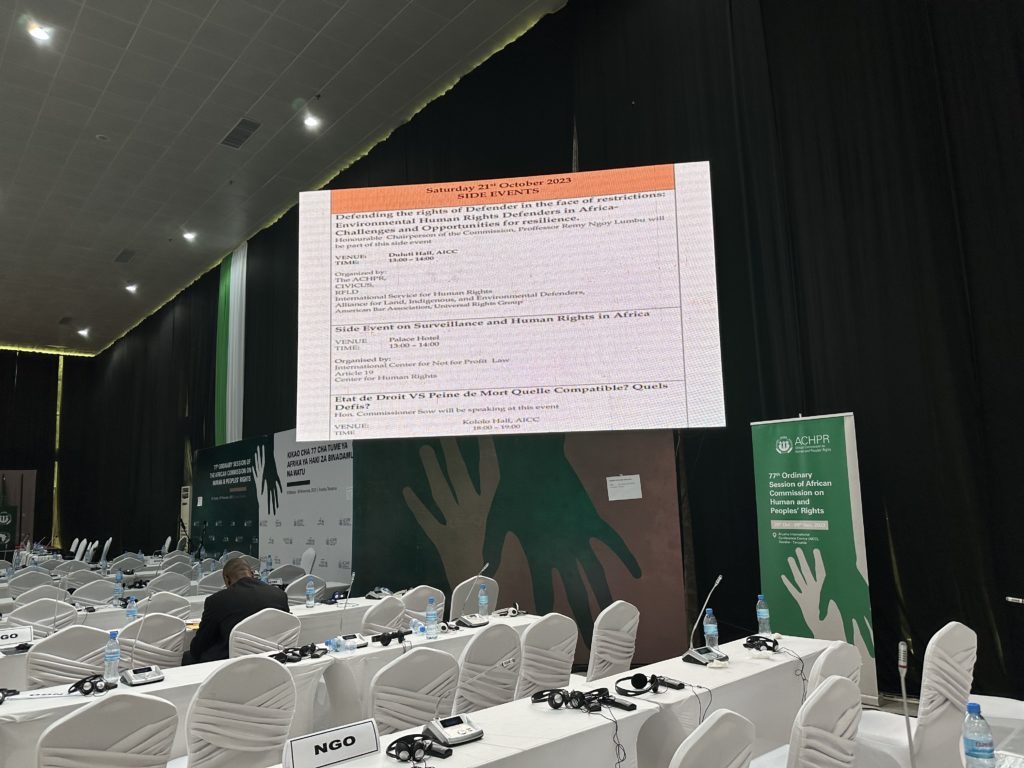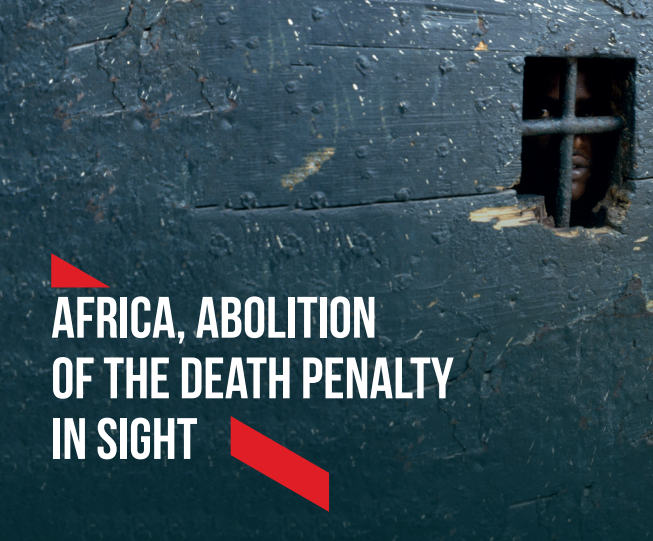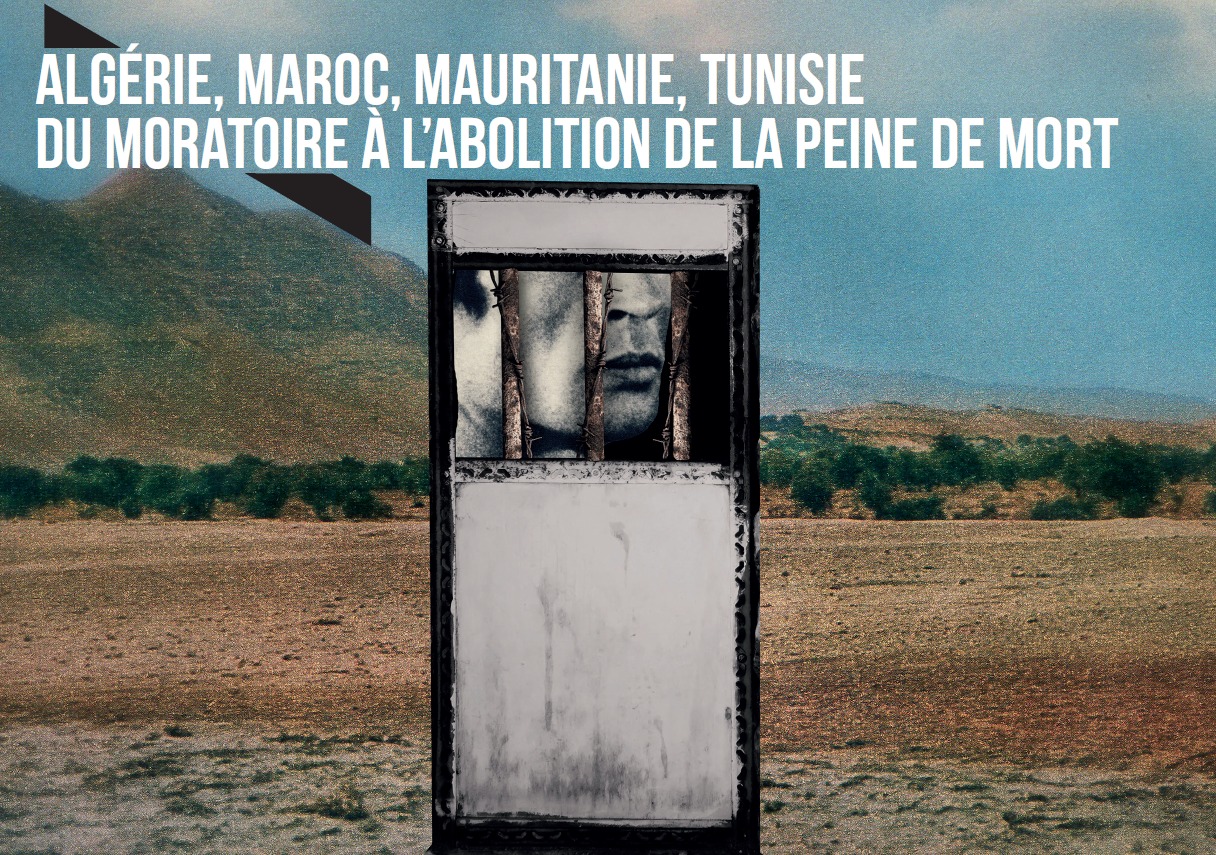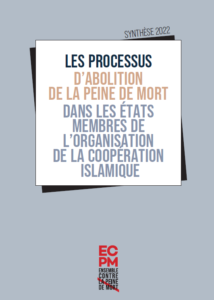On October 21st, ECPM, CTCPM, Culture for Peace and Justice (CPJ) in conjunction with the Francophone African Coalition against the Death Penalty and the World Coalition against the Death Penalty organized a side event on the sidelines of the 77th session of the African Commission on Human and People Rights (ACHPR) entitled: “Rule of law vs death penalty; what compatibility, what challenges?”
Speakers included Mr. Idrissa Sow, Commissioner and Chair of the Working Group on the Death Penalty of the ACHPR, Mr. Chokri Latif, President of the Tunisian Coalition Against the Death Penalty (CTCPM), Mr. Yasin Sentumbe Munagomba (Uganda), lawyer and member of the Foundation of Human Rights Initiative (FHRI), and Liévin Ngondji, lawyer, president of culture for peace and justice (CPJasbl -DRC) and President of the Congolese Coalition Against the Death Penalty (recorded intervention). This panel was moderated by Julia Bourbon Fernandez, Head of MENA desk at ECPM.
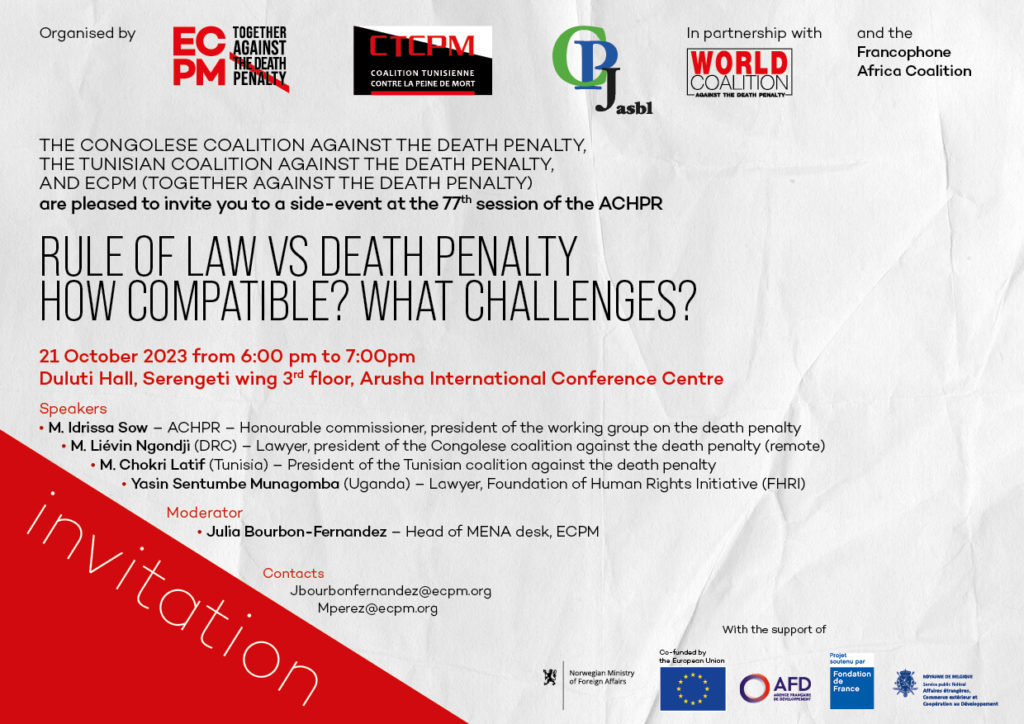
Idrissa Saw recalled the mandate of the ACHPR which, in addition to a protection mandate like that of the African Court on Human and Peoples’ Rights, also has a promotion mandate. Furthermore, as few States have ratified OP2 and the Protocol to the African Charter on Human and Peoples’ Rights are still under discussion, most States are not obliged to ban the death penalty but to limit its application in accordance with the international instruments that they have ratified, in particular the African Charter on Human and Peoples’ Rights and the International Covenant on Civil and Political Rights. The Human Rights Committee in its General Comment No. 36 and the African Commission on Human and Peoples’ Rights in its General Comment No. 3 clarified the scope of the States’ obligations. If they do not respect these limitations, they can be sanctioned. This was the case in the ECOWAS Nenna Obi case on behalf of other death row inmates in Nigeria v. Federal Republic of Nigeria (ECW/CCJ/JUD/27/16).
To maintain the death penalty, States mainly invoke few arguments including the fight against insecurity. It is essential to deconstruct these arguments. The death penalty must be abolished because justice that applies the death penalty is not effective justice.
Idrissa Sow, Commissioner and Chair of the Working Group on the Death Penalty of the ACHPR
The other speakers clarified the contexts in Tunisia, Uganda and the DRC, highlighting the relationship between gaps in the rule of law and the retention of the death penalty. Chokri Latif recalled that in Tunisia, in the current context, the death penalty is used for political ends and used as a threat against certain opponents. Yasin Sentumbe Munagomba explained the link between the lack of independence of the judiciary and the recent adoption of the death penalty for homosexuality in Uganda, and showed how alarming the situation was for the rule of law. This legislative reform is both a consequence of the absence of the rule of law and a source of violations of the rule of law. Liévin Ngondji recalled that in the DRC, the moratorium had been reinforced by the options raised by the Sun City agreements of 2003, which put an end to the break-up of the country with the mission of restoring the authority of the State and establishing the rule of law. The State authorities are unaware that the rule of law is a choice; not to prioritize the rights of those in power and their security, but rather, without removing the obligation of the individual to respect the State, to be able to support respect for the fundamental rights of the individual, which is at the heart of the Republic. This represents a major conceptual change in criminal law based on a new public order in which both the accused and the victim are essential elements of the procedure. The protection of the victim must not justify the sacrifice of the essential rights of the accused. In many countries, the so-called protection of victims’ rights is currently at the expense of the rule of law. The retention of the death penalty is accompanied by serious violations of human rights, in particular the lack of respect for the right to life, the rights of detainees and acts of torture, but also in a context of impunity
All the speakers stressed that the death penalty is contrary to the rule of law when it does not comply with regional and international law, particularly when it is applied to minors, pregnant women or crimes that cannot be considered the most serious under international law. Several participants stressed that it was paradoxical that States committed to ratifying the Rome Statute on the establishment of the International Criminal Court, the International Covenant on Civil and Political Rights protecting the right to life and the International Convention on the Prohibition of Torture and Other Cruel, Inhuman or Degrading Treatment or Punishment. To maintain the death penalty in a legal arsenal is to maintain ineffective justice. In states observing a moratorium, nothing excludes a resumption of executions.
